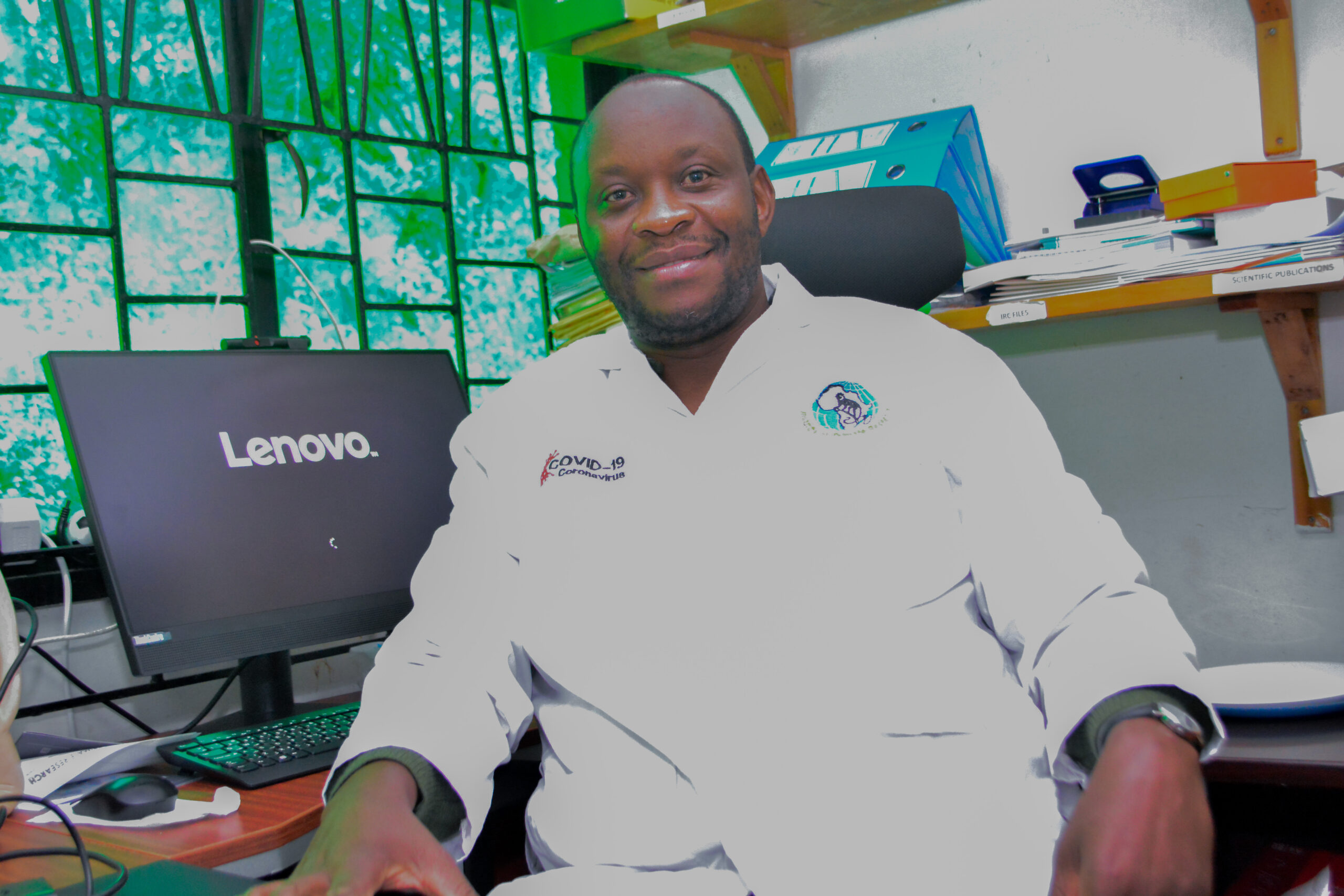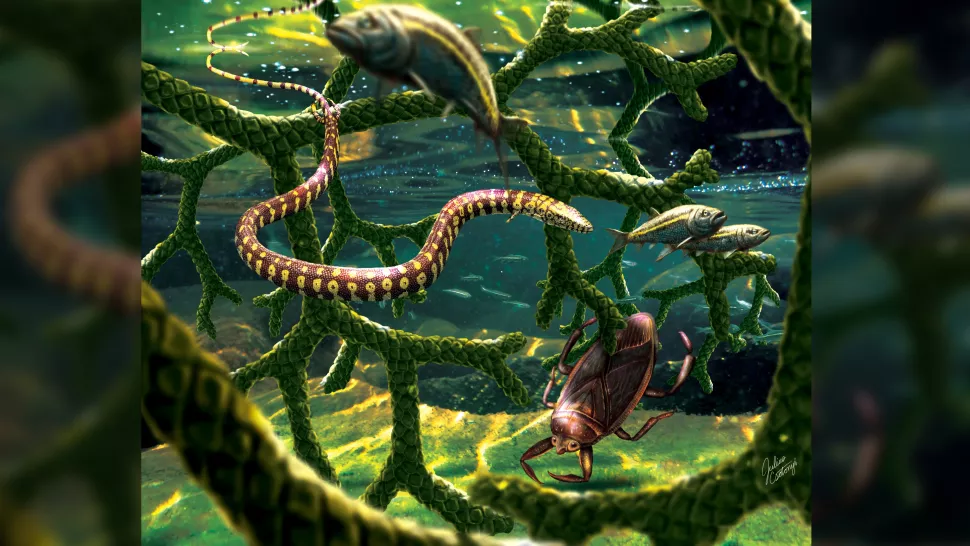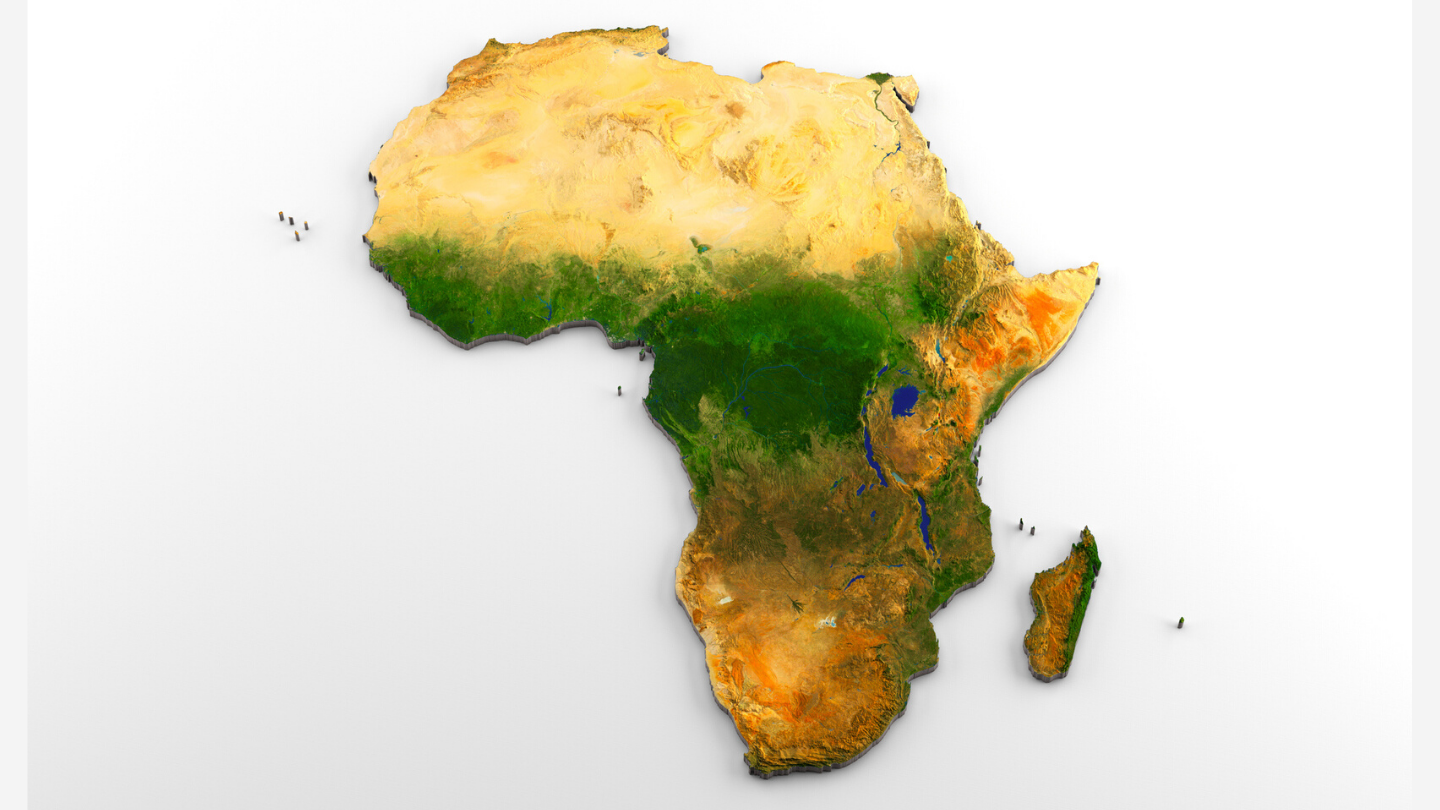What is One Health?

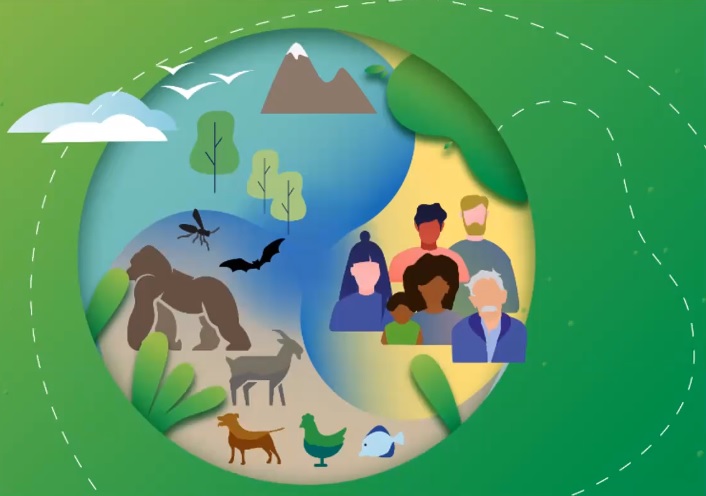
The increasing burden of our current complex health issues; emerging and re-emerging infections, antimicrobial resistance, and lifestyle-related problems have established that human health, animal health, and environmental factors are intrinsically dependent on each other. “Health” as a concept should not be confined to one sector working alone. One Health: “ An approach which involves the multi-sectoral collaboration of the human health, animal health, wildlife and environment sectors among other stakeholders communicate and work together to achieve better public health outcomes”.
Follow us
Email: onehealthcentre@primateresearch.org
Twitter: @OHC-IPR
Facebook: OHC-IPR
Instagram: @OHC-IPR
About The Centre
One Health Centre has been committed to research and services aimed at improving the health status of humans and animals using a One Health approach. One Health Centre grew out of a molecular laboratory’s deep commitment to understanding zoonotic diseases at human-livestock-wildlife interphase andpredisposing factors inclusive of cultural behavior and practices. Kenya is at risk from zoonotic and other transboundary diseases due to her geographical location, growing human population, close livestockwildlife-human interactions, and porous borders among other factors. The One Health Center aims at addressing these complex problems that impact the health, biodiversity and practices, and culture of our communities by conducting extensive research by utilizing different expertise and techniques from sample collection and handling, epidemiology, modeling, bioinformatics, molecular and serology. One Health Centre is home to many programs, partnerships, and initiatives within the Institute of Primate Research and beyond.
HEAD OF DEPARTMENT

Joseph Kamau
Ph.D., MSc. BVM
Dr. Kamau is the Head of One Health Centre and a Senior Research Scientist at the Institute of Primate Research in Kenya. He is a veterinarian with a PhD in Infectious Diseases received from Hokkaido University International Institute of Zoonoses Control in Japan https://www.czc.hokudai.ac.jp/en/, studying the functional analysis of putative Theileria Orientalis hemolysins and its molecular epidemiology. He has also received a postgraduate diploma in zoonoses control from the same University in Japan with a dissertation on Molecular Epidemiology of Avian Influenza in Asia. Following completion of his Ph.D. He proceeded to a one-year post-doctoral program at the University KwaZulu-Natal, Durban South Africa where he focused on host immune responses. He has an affiliation with AFROHUN, the One Health Workforce, and the University of Nairobi. His research interests include emerging infectious diseases, and pathogen discovery and diagnostics. With extensive experience in infectious diseases and One Health, his research continues to focus on emerging infectious diseases – especially those zoonotic in nature that may spill over at high-risk human-livestock-wildlife interfaces.
Our Science
The Centre has four thematic areas:
Infectious disease, Disease Surveillance, and Pathogen Discovery
Our Projects

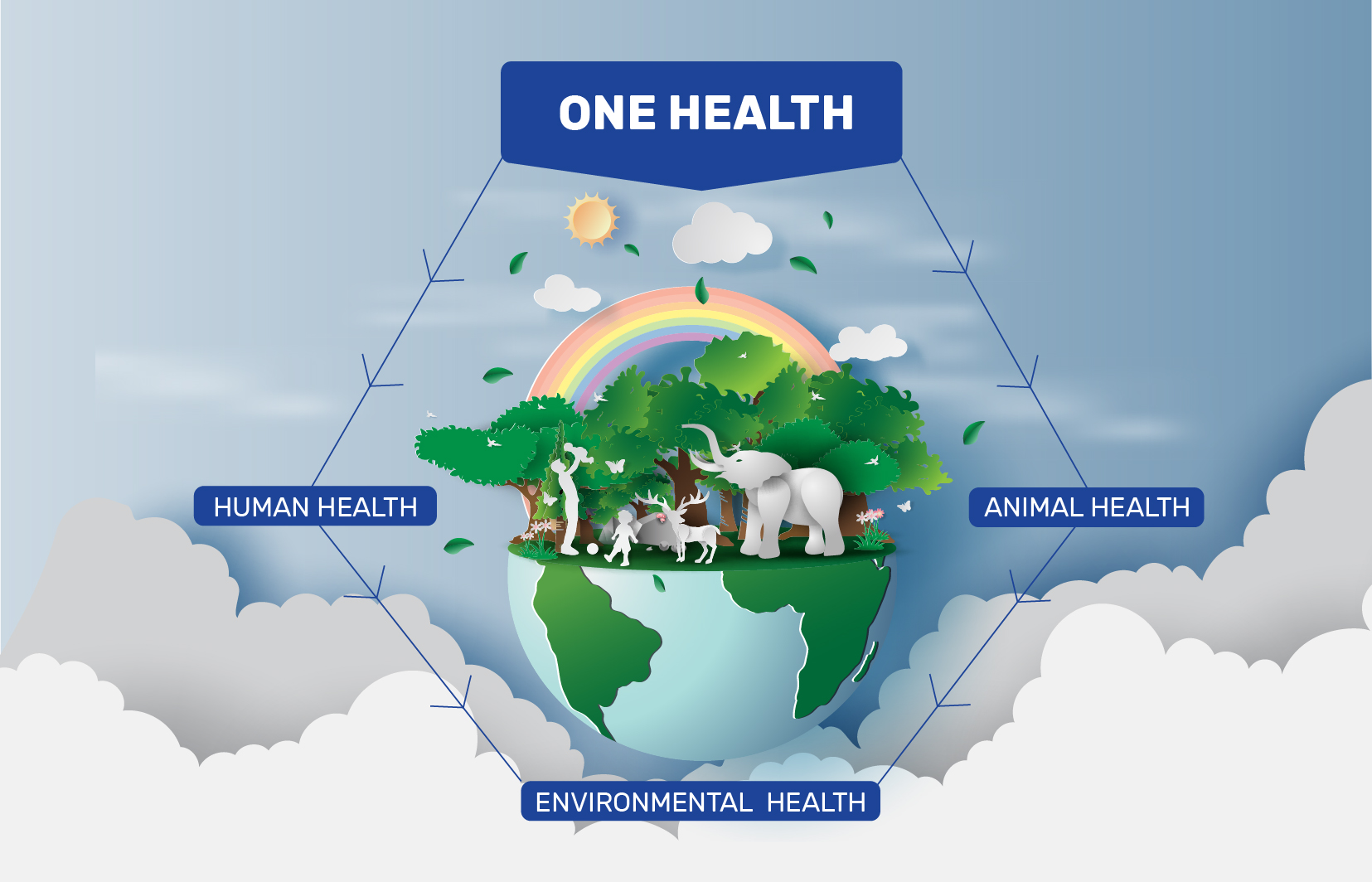

- Predict Kenya, a USAID grant project, with the engagement of interdisciplinary partners, was geared towards understanding how infectious diseases were transmitted from animals to humans.The goal of PREDICT/Kenya was to address growing needs for public health security and capacity; strengthen the capacity for rapid detection and response to viral pathogens as well as identify zoonotic infectious diseases before they pose a pandemic threat and be able to communicate this information between health professionals(animal and human). This was accomplished by implementing an active surveillance project at high-risk human-animal-environment interfaces to detect as well we mitigate potential zoonotic threats before a spillover to human communities. In addition, behavioral data was gathered from the local communities at risk of exposure due to their close contact with wildlife and domestic animals to better understand and characterize the potential for zoonotic viral exposure.
Some of our key achievements
• One novel coronavirus and one previously detected coronavirus were detected in bats.
• Trained individuals in One Health field and laboratory skills, capacity strengthening efforts with in-country partner institutions, education and professional development of students as well as empowerment of local communities to make better health decisions to better their community.
• We played a key role in the development of Kenya’s One Health National Strategic Plan (2017-2022) in collaboration with the government and academic partners. This allows for the identification of targets for intervention and development of effective disease prevention and control strategies at local, regional, and national scales.
2. NRF grant project. Project title: Whole-genome sequencing of SARS-CoV-2 and other emerging coronaviruses in humans, bats, and non-human primates from COVID-19 hotspot counties in Kenya and in silico development of COVID-19 vaccine candidates. It is a multiinstitutional project with aim of unraveling coronaviruses in different hosts, developing a vaccine candidate, and training.
3. Molecular characterization of tick-borne diseases with a keen interest in Crimean Congo hemorrhagic fever in wildlife and livestock at human-animal-wildlife interphase.
4. Sero-prevalence of brucellosis and MERS-COV in livestock reared by pastoralist communities.
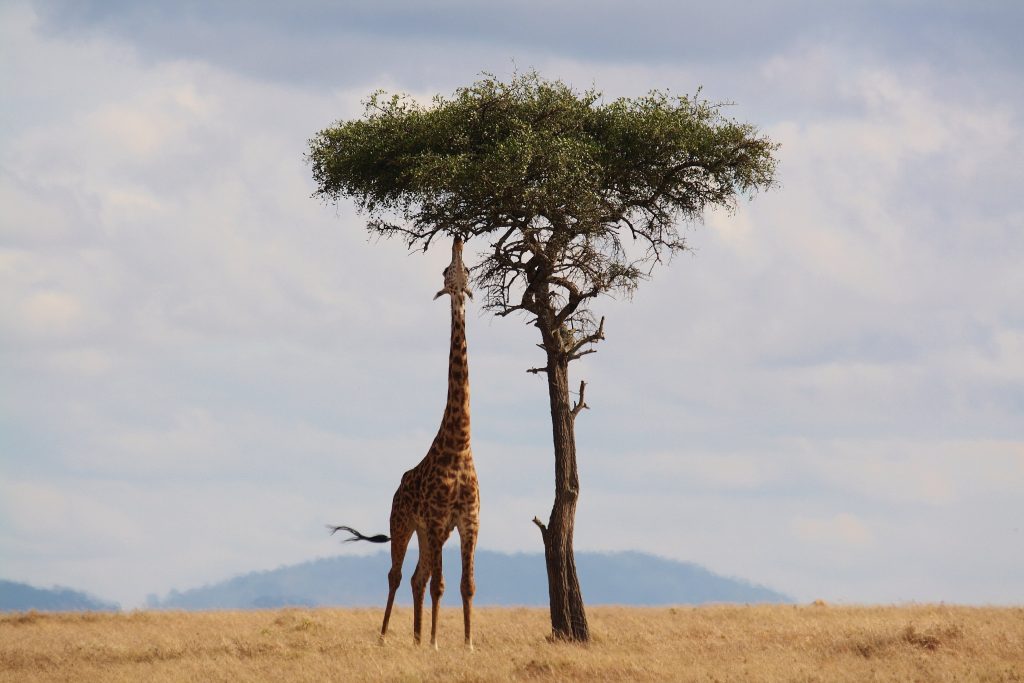
OUR RESEARCH PUBLICATIONS
Microbiome and Antimicrobial Resistance

A microbiome is a collection of microorganisms (fungi, bacteria, and viruses) and their genes that exist in a particular environment. The microbiome is dynamic and changes with the different factors such as early development, environmental, land-use changes, diet, use of antibiotics, and response to diseases. These microbes can influence health in many ways and even how we react to certain environmental substances.
At One Health Centre, we are seeking to uncover what constitutes the microbiome in animals, vectors, and the environment at the human-livestock-wildlife interphase. We will be looking at how diet, land-use changes, environmental factors, animal movement, and antimicrobial resistance affects changes in the microbiota of food-producing animals, vectors, and wildlife and, how these changes are linked to health outcomes. Currently, we are working on understanding microbiome diversity and how the structure of microbiome communities in various tick species and non-human primates (NHPs) across East African ecologies within wildlife populations and at livestock-human interface influencing tick-borne pathogen distribution and individual health, immune function, disease risk and survival within and among NHPs.
Antimicrobial resistance (AMR) has intensified in an inconceivable and distressing manner in human, agriculture, and veterinary medicine. If appropriate antimicrobial stewardship is not implemented effectively, we are faced with limited options in combating most of the infections.
The population of Kenya’s livestock has increased exponentially in order to meet the growing demand of the human population due to climate change, which drives further changes in land use and farming practices.
At One Health Centre, we are addressing antimicrobial resistance by conducting surveillance of
antimicrobial usage and risk factors associated with unregulated antimicrobial usage among the pastoralist communities and conservancies/ranches. Identifying these factors driving AMR emergence in the
communities will help us to identify and design interventions that are most likely to have an impact. We are also investigating antimicrobial resistance genes harbored in the microbiome of food-producing animals and the environment and establishing their similarity to clinically significant AMR genes affecting human health. Our research focuses on the characterization of microbiomes and their associated resistance genes of public health importance (zoonotic) especially those found at the human-livestock-wildlife interface.
Molecular and Sero-Diagnostics
In the horn of Africa, we continue to experience limitations in the quick and accurate diagnosis of infectious diseases. This is compounded with poor expensive sampling reagents, and fragile unreliable supply chains limiting both diagnosis and research. At One Health Centre, we seek to utilize biotechnology tools that harness biomolecular and cellular processes to locally produce products and technologies that respond to emerging disease burdens and sustainably maintain research capacity. The projects are focusing the development of simple rapid diagnostic kits for detecting EIDs of public health importance, especially those that overlap between the human and animal interphase. In addition, the lab is involved in the production of locally made reagents and consumables.


Global Epidemiology, Modelling, and Informatics
Scientists have practiced separately animal and human medicines since the 1800s. In recent years, One Health Concept has gained momentous recognition in public health and animal health communities.
Similarly, the use of various types of epidemiology to establish 1) the origin of diseases 2) the control of known or unknown diseases 3) the gathering of ecological and historical information about a disease 4) Disease control policies, and 5) the economic impact of a disease have been widely investigated and applied.
While Epidemiological investigations provide necessary data about epidemiological systems, it takes mathematical analytics, modelers and informaticians to deduce information from such systems that guide key objectives in the health sector. The laboratory utilizes Unix/Linux OS& command-line skills (Shell), R&R studio, Python, Nextflow pipelines such as viralrecon, and computational software/tools such as Geneious, MegaX, ngs_mapper, IGV, and many others in performing multiple sequence alignment,
phylogenetic analysis, variant calling, genome assembly and de novo assembly of sequenced etiology agents of infectious zoonotic diseases.
Partnerships
2. Mpala Research Centre (MRC) https://mpala.org/
3. Wildlife Research Training Institute (WRTI) https://wrti.go.ke/
4. Kenya Wildlife Service (KWS). http://www.kws.go.ke/
5. Kenya Medical Research Institute (KEMRI) https://www.kemri.go.ke/
6. Smithsonian, Global Health Program https://nationalzoo.si.edu/global-health-program
7. Henry Jackson Foundation (HJF) https://www.hjf.org/
8. The University of Nairobi, Centre for Epidemiological, Modelling and Analytics (CEMA)
https://cema.africa/
9. Columbia University, Center for Infection and Immunity
https://www.publichealth.columbia.edu/research/center-infection-and-immunity
10. Princeton University https://eeb.princeton.edu/people/julien-ayroles
11. George Mason University https://chhs.gmu.edu/profiles/mvonfric
12. Washington State University, Global Health Program, USA https://globalhealth.wsu.edu/global-
health/kenya/team
13. The University of California Davis, One Health Institute, USA https://ohi.vetmed.ucdavis.edu/
14. KU Leuven, Belgium
15. Arizona State University, Center for Evolution and Medicine- https://stone.lab.asu.edu/
SCIENTISTS PROFILE

Research Interests: He is a molecular and structural biologist, with a PhD in Bioengineering received from the Vrije Universiteit Brussels (VUB), Belgium. For his PhD thesis, he undertook a study on the structural and functional characterization of select glyco-phosphatidyl inositol (GPI) - anchored membrane proteins in bloodstream forms of the protozoans, Trypanosoma brucei brucei and Plasmodium falciparum. Following completion of his PhD, he undertook a post-doctoral program with a focus on viral diseases, such as Foot and Mouth disease virus as well as avian models of Hepatitis-B at the Katholieke Universiteit Leuven (KU-Leuven), Belgium. He has a broad research expertise including animal models of disease, molecular biology, structural biology, virology and single domain antibody technology. His current research goal is to understand the structure and functions of proteins in their various biological niches. This would allow for the innovation of novel diagnostic, prophylactic and therapeutic approaches to resolving various disease conditions in the medical and veterinary fields. Research Interests: Samson is actively involved in research projects on one health, detection and characterization of emerging and reemerging infections, some of which are zoonotic and trans boundary using sero-molecular techniques. Samson was the lead in PREDICT 2 sample analysis (viral extraction, cDNA conversion, PCR and serological detection). He is proficient in field work, skills acquired during PREDICT 2 sampling of livestock and wildlife. Samson has expertise in biotechnology and its application in protein productions. He has attended training in the identification, characterization and isolation of foot-and-mouth disease virus and biotechnology transfer at the University of KU- Leuven faculty of bioscience engineering 2022. Research Interests: Fatima Hussein has an Honors Bachelor’s Degree in Cell and Molecular Biology from the University of Toronto, an advanced Diploma in MedicalLaboratory Science at the Michener Institute of Applied Health Sciences and a Masters’ degree in Business Administration with a concentration in Health Leadership and Management in the United States International University. Fatima was the Emerging Pandemic Threats Predict 2 Human SurveillanceLead and worked in data analysis using QGIS and R studio. She has collectively mentored numerous bachelor's students, Masters’ students, and PhD students with their research interests in Biological Sciences. Fatima’s research interests include the One Health Initiative and Mapping Emerging Infectious Disease Risk in Kenya. Research Interests: Mary is a PhD student at One Health Centre, affiliated with the University of Nairobi (Kenya) and the University of Notre Dame (USA). Her research focuses on better understanding how the microbiome diversity and the structure of microbiome communities in non-human primates (NHPs) influence individual health, immune function, disease risk and survival within and among wildlife populations. She has a keen interest in understanding the epidemiology of multihost pathogens, disease surveillance, dynamics of disease transmission and progression at the livestock-wildlife interface and one health using non-invasive genetic tools and Bioinformatics tools. Her broad research interests include microbiome dynamics and the use of Bioinformatics and Biodefense tools to improve security in the face of threats from infectious diseases. Research Interests: A statistician by training with interests in Machine learning (ML), particularly Gaussian Processes (GPs), for modelling infectious disease transmissions and epidemiological phenomena. Patrick has modelled and predicted the Covid-19 Transmission dynamics in Kenya using Gaussian Stochastic Process withSusceptible-Infected/Infectious-Recovered/Removed as the compartmental model prior. His focus is on the applications of Machine Learning (ML), specifically Gaussian Processes (GPs), in Epidemiological Modelling, diseases Mapping,Multivariate Regression Analysis, Probability theory, and Bio-Medical Research all of which form the key facets of the one-health approach to better health for all.Patrick is familiar with statistical programming tools such as R, Python, Excel, STATA, SPSS, and CSpro.These tools are important for data programming, collection, and collating. Research Interests: Irene holds a BSc. in Microbiology and MSc in Molecular medicine. Her research focuses on characterization ofmicrobiomes and their associated resistance genes of public health importance (zoonotic) especially those found at the humanlivestock-wildlife interface. She seeks to further understand antimicrobial resistance (AMR) transmission dynamics and potential drivers including AMR influencing transmission and persistence of EIDs. Irene is also interested in the application of CRISPR-Cas system as a diagnostic tool in detection of zoonotic organisms and associated resistant genes. She believesunderstanding microbiome in food-producing animals andassociated antimicrobial genes is essential in development of diagnostic markers to enable early detection and or sound interventions. Irene was awarded EcohealthNet fellow 2022 opportunity, to map mycobacterium and AFIs and further assess emerging risk factors driven by land-use changes in pastoral communities’ culture, behavior, and practices on the disease incidence. Research Interests: David holds a BSc. in Microbiology and Biotechnology and MSc. in Bioinformatics and Molecular Biology. He is a growing bioinformatician with a keen interest in both genomic data production and using computational skill sets to answerresearch questions in the fields of zoonotic infectious diseases and wildlife conservation. Specifically, he is usingbioinformatics tools and programming languages in disease surveillance, digital biosecurity, pathogen discovery, diagnosis, and development of non-invasive protocols plus webapplication (R-shiny) for wildlife ecological monitoring. He is a BiXCop 2021 fellow, 2020 EcohealthNet fellow recipient and due to his interest in capacity development, he is a co-founder and trainer at the Bioinformatics Hub of Kenya Initiative (BHKi). Research Interests: With a background in Biochemistry and Molecular Biology, Victor has worked on molecular diagnostics of infectious diseases particularly HAT (Human African Trypanosomiasis). Victorplayed a big role as the lab biosafety and biosecurity officer during the COVID-19 pandemic. Victor seeks to support One Health activities institutionally and locally by optimizing diagnostic methods, procedures and protocols that support lab safety, security, and the safe and secure handling of zoonotic pathogens. He firmly believesthat Biosafety, Biosecurity and Biorisk Management are a key component of One Health by working to reduce the exposure of laboratory personnel, the public, agriculture, and the environment to potentially infectious agents and biohazards.
DEPARTMENTAL NEWS

4-legged 'snake' fossil is actually a different ancient animal, new study claims
A dinosaur-age fossil heralded as the first four-legged snake known to science might actually be an entirely different beastie, a new study claims….
Threats and outbreaks of cholera in Africa amidst COVID-19 pandemic.
Every year, about 4 million cases and 143,000 deaths due to cholera are recorded globally, of which 54% were from Africa, reported in 2016. The outbreak and spread of cholera have risen exponentially particula…
Alu Leap May Explain Why Apes Don’t Have Tails
he presence of a transposable element might explain how humans and our great ape cousins lost our tails about 25 million years ago.

